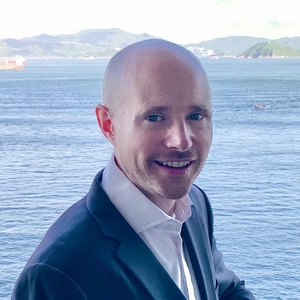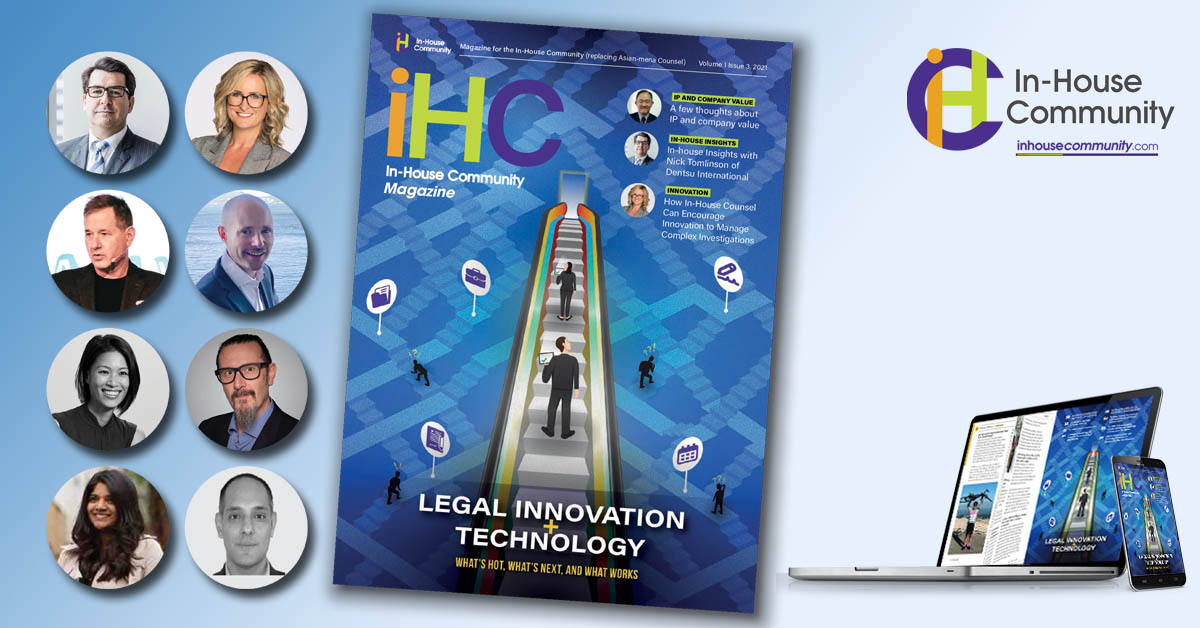Eoin Gillen (APAC General Counsel for BNP Paribas) speaks to Stephanie Szeto (head of Peerpoint) about the challenges and opportunities of embracing technological transformation within the BNP Paribas in-house legal team.
Stephanie: Could you tell us a bit about how BNP Paribas has successfully leveraged technology in your legal team’s innovation?
Eoin: With the technological transformation going on around us, legal departments simply cannot afford to ignore the possibilities that digital innovations bring. We’ve developed a number of things, some in partnership with vendors and others internally.
As part of a large financial institution, and with banks themselves becoming more like large technology companies, when it comes to things like document automation tools the legal department is part of a bigger product and process chain. BNP Paribas is not just looking at the production of legal documentation, but every element of the transaction from start to end. Some of our document automation initiatives have been in that context, but our in-house legal function is also large enough to justify investment in technological solutions that are tailor-made to meet our needs. We’ve invested significantly in document automation tools for standardized contracts and have been are upskilling certain staff with basic coding skills to get the most out of those tools.
We’ve also built a proprietary legal risk reporting tool that is being used globally, allowing us to monitor and track the development of new legal risks. That creates a structured data set that can be analyzed to anticipate risks and spot risk trends and patterns, so we can focus resources or beef up talent as we need to.
Stephanie: How have you decided which tools to develop internally and when to engage external vendors?
Eoin: A lot of those decisions are taken centrally. First, establishing what we need and then comparing what is available in the market to what we are capable of building. For example, we presently use an external platform to manage our outside legal spend management. This solution uses AI and machine learning and provides us with data analytics and true market intelligence.
In contrast, our document automation tools plug into broader systems across the business, so it makes sense for us to develop those internally, plus we have the capability to do so. If there’s a useful tool in the market that does something we need, we will look at it.
Stephanie: Peerpoint has had the pleasure of working with your team to support some of these legal innovation initiatives. How have you created the culture of openness to change that has put you at the forefront of legal innovation, particularly in APAC?
Eoin: To successfully implement the changes we’ve made, and continue to make, we’ve had to create an environment where our team members are open to, and even embrace, change. It’s a journey we’ve been on for some time, and the pace has certainly accelerated in the past 12 months.
Changing mindsets takes time – you must convince people it is in their interest to accept change. It can’t be a top-down instruction. It is about getting people to believe in the evolution and buy into the process. So, it’s about communication and explanation, and trying to sell the positives because people are naturally suspicious and creatures of habit.
We’ve been emphasizing that lawyers are primarily employed because of their technical legal skills, so time spent on administrative tasks that can be done more efficiently elsewhere is not time well spent. It is better for everyone if lawyers spend their time on high-value, interesting work.
Interestingly, I’ve noticed that once you achieve this openness to change it becomes a motivating force, increasing employee engagement and invigorating lawyers in how they approach their work. This in turn promotes innovation, so you end up with a virtuous circle of organizational or structural change and the introduction of new technologies begetting new ideas, which enables a positive transformation of the legal function.
Stephanie: That’s consistent with our experience at A&O. We have an internal platform called I2 that allows our people to suggest better ways of doing things, which our legal technology group looks at and – where appropriate – takes forward. That creates a contagious way of thinking, encouraging people to think about how efficiencies can improve how they practice and deliver advice efficiently. Building on that, what new skillsets will be particularly valuable for in-house lawyers going forward?
Eoin: More often, we are looking for our lawyers to demonstrate adaptability, agility and intellectual curiosity. Of course, technical skills remain extremely important – such as knowledge of the law of the jurisdiction in which you practice and specialist knowledge of business lines, markets or legal practice areas. But those skills can often be learned on the job and the idea that a lawyer can build an entire career in a single line of specialization is becoming outmoded.
To be successful, lawyers will certainly need to be comfortable with technology. We don’t need all our lawyers to be proficient coders but they need to be open to adopting and leveraging the IT tools available to work efficiently and integrate the delivery of legal services into businesses that are becoming ever more reliant on technology.
We are fortunate here at BNP Paribas in Asia that we have a diverse and enthusiastic team with a bucketful of talent. They are asking to be challenged and to do new things. That’s exactly what we need and what we look for when recruiting.
Stephanie: Finally, can you tell us what excites you about the future for in-house legal teams?
Eoin: I’m not worried in-house legal teams are going to become irrelevant, quite the opposite. The world is becoming more complex and institutions need lawyers to help them navigate that complexity, creating a golden opportunity for lawyers to shape change, expand their remit and become more integral to the success of their institutions.
Changing mindsets takes time – you must convince people it is in their interest to accept change. It can’t be a top-down instruction. It is about getting people to believe in the evolution and buy into the process. So, it’s about communication and explanation, and trying to sell the positives because people are naturally suspicious and creatures of habit.
The center of gravity is shifting and, while there will always be a place for private practice expertise, the role of in-house teams is becoming increasingly important. Our roles are moving beyond the business-as-usual flow of transactional documentation to encompass issues around risk anticipation, data privacy, franchise, reputation protection, plus a whole host of other topics that were not previously considered our core responsibility.
For more information and queries on the bidding submission, please contact the key contact person(s).
 |
Eoin Gillen
Was appointed APAC General Counsel for BNP |
 |
Stephanie Szeto
stephanie.szeto@allenovery.com Head of Peerpoint in Asia, Allen & Overy’s (A&O) |
Allen & Overy, 9/F, 3 Exchange Square, Central Hong Kong, Hong Kong, China
*This article is the IHC Magazine’s off-shore update for July 2021 issue. Click here to read the full magazine




